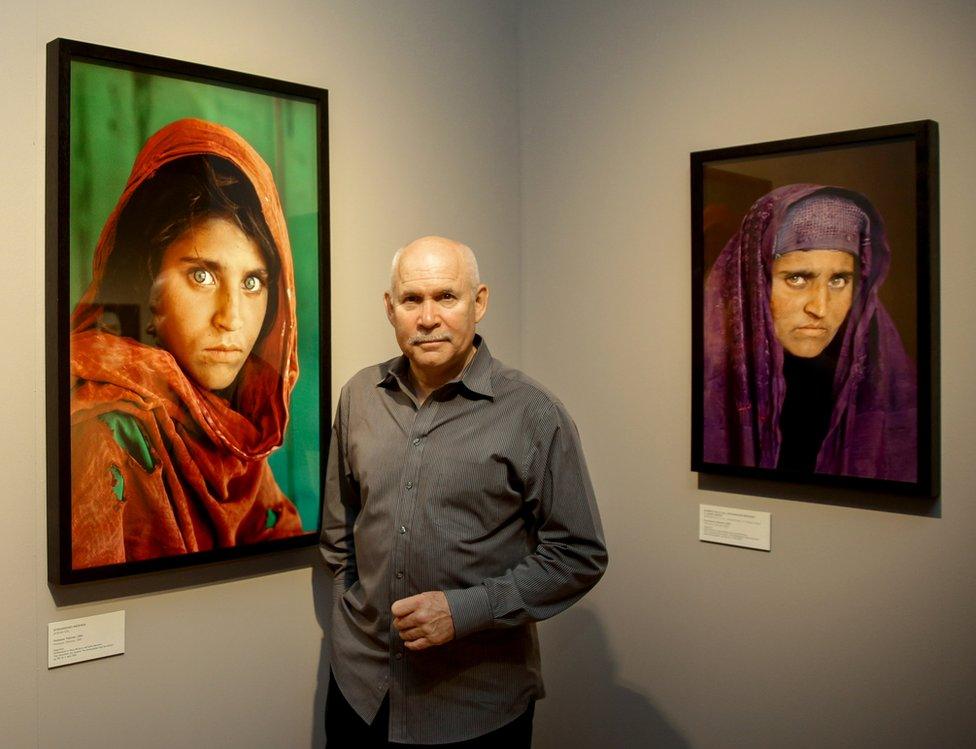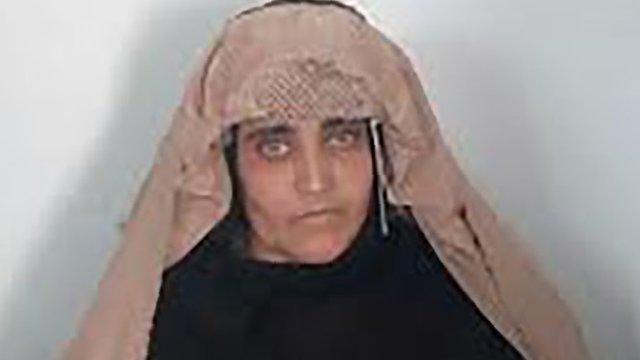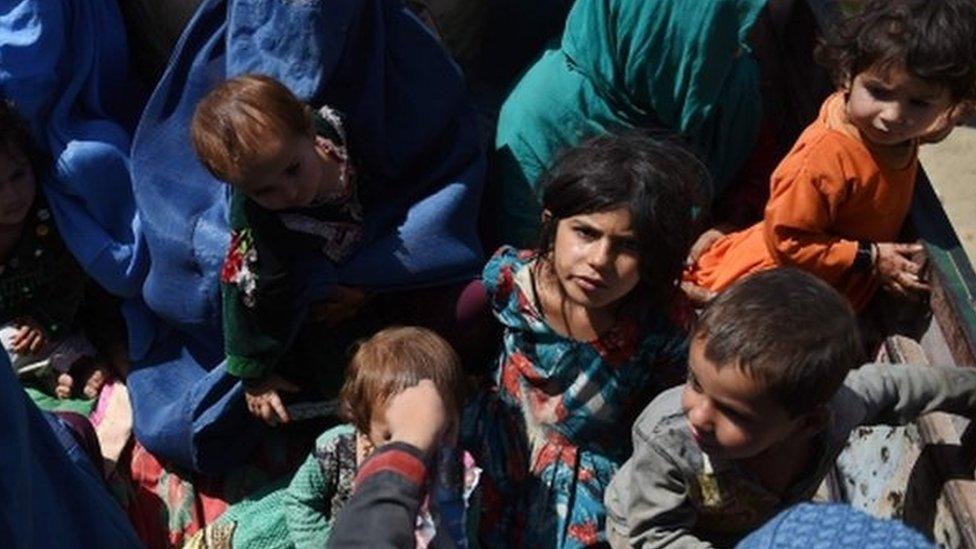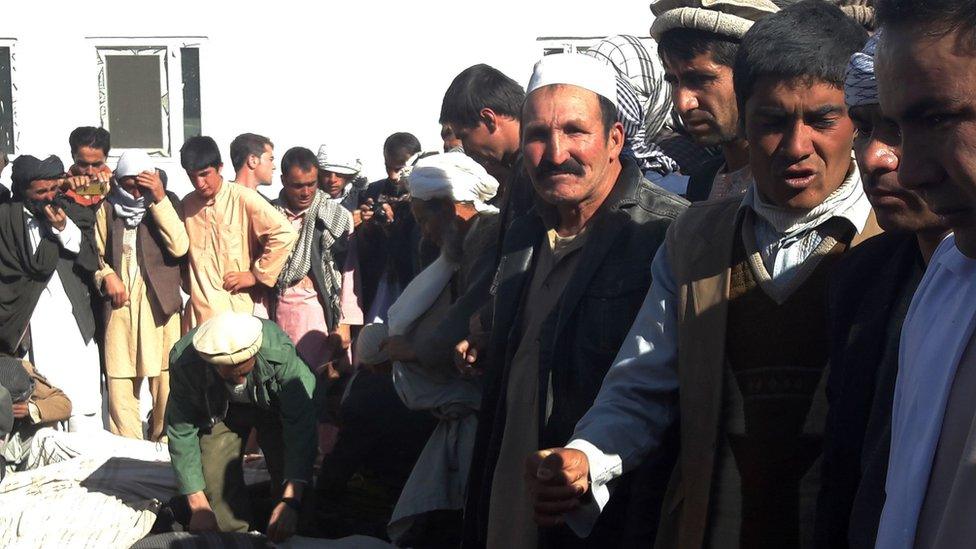Afghan Girl: National Geographic photographer vows to help
- Published

Sharbat Gula was famously photographed by Steve McCurry (pictured) - who tracked her down again 17 years later
A photographer who took the iconic National Geographic image of an Afghan refugee in 1985 has vowed to do "anything possible" to help after reports she has been arrested.
Officials say "green-eyed girl" Sharbat Gula has been detained in Pakistan on suspicion of holding fake ID papers.
She could face a fine and up to 14 years in jail.
Photographer Steve McCurry posted to Instagram, external that this was "an egregious violation of her human rights".
He wrote: "We are doing everything we can to get the facts by contacting our colleagues and friends in the area.
"I am committed to doing anything and everything possible to provide legal and financial support for her and her family.
"I object to this action by the authorities in the strongest possible terms. She has suffered throughout her entire life."
More on Afghanistan
Afghanistan's looming refugee disaster
Thirty abducted Afghan civilians killed
Pakistan recently launched a crackdown against fake identity papers. Thousands of Afghan refugees living in Pakistan who have tried to dodge its computerised system.
Mrs Gula allegedly applied for an identity card in April 2014, using the name Sharbat Bibi.
An official from the National Database Registration Authority (Nadra) said three staff who issued Mrs Gula's ID have been missing since the alleged fraud was reported.
The Federal Investigation Agency (FIA) are seeking those staff members and are also looking for Mrs Gula's husband.
The celebrated "Afghan girl" picture of then-12-year-old Mrs Gula was taken in 1984 in a refugee camp in north-west Pakistan, during the Soviet occupation of Afghanistan. It led to one of the most recognisable magazine covers ever printed.
In 2002, Mr McCurry tracked his subject down, external after 17 years of searching.
At that time, Mrs Gula was living in a remote Afghan village with her baker husband and three daughters.
Mr McCurry arranged funding for her biggest wish - to go on the Hajj pilgrimage to Mecca with her family.
She has since moved back to Pakistan, to the Peshawar region near the Afghan border.

The FIA released an image of Mrs Gula ahead of an expected court appearance in Peshawar
Pakistan's push against foreigners getting fake ID cards through fraud has detected 60,675 cards in the hands of non-nationals, officials say.
Recent UN figures show that Pakistan hosts 1.4 million registered Afghan refugees. A further one million unregistered refugees are believed to be in the country.
- Published12 October 2016

- Published26 October 2016
